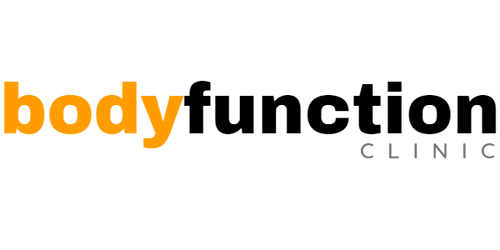24/7 online booking

Can Neck Pain Cause Jaw Pain? Exploring the Connection
Neck pain and jaw pain are two common complaints that many people experience at different times. However, what may come as a surprise is that these two types of pain can often be interconnected. Understanding how neck pain can cause jaw pain, and vice versa, can help in managing and treating these conditions effectively. In this blog, we’ll delve into the link between neck and jaw pain, the underlying causes, and what you can do to find relief.
The Link Between Neck Pain and Jaw Pain
The neck and jaw are closely related both anatomically and functionally. The muscles, nerves, and joints in these areas are interconnected, meaning that issues in the neck can easily impact the jaw and cause pain. Several factors contribute to this connection:
1. Temporomandibular Joint (TMJ) Dysfunction
The temporomandibular joint (TMJ) is the hinge joint that connects your jaw to your skull, located near the base of the ear. This joint is closely associated with the muscles and nerves in the neck. When the TMJ is not functioning properly—a condition known as TMJ dysfunction—it can lead to pain in the jaw, face, and neck. Conversely, tension or misalignment in the neck can strain the TMJ, leading to jaw pain.
2. Muscle Tension and Strain
The muscles in the neck, particularly the upper trapezius and sternocleidomastoid, are linked to the muscles of the jaw. When there is tension, strain, or spasms in these neck muscles, it can lead to referred pain in the jaw. This type of pain is often due to poor posture, stress, or overuse of the neck muscles, such as from extended periods of looking down at a phone or computer screen.
3. Nerve Irritation
The nerves that run through the neck also serve the jaw and face. Conditions such as a herniated disc in the cervical spine or other forms of nerve compression can lead to irritation or inflammation of these nerves, causing pain that radiates to the jaw. This type of referred pain is not uncommon in people with neck issues.
4. Poor Posture
Maintaining a poor posture, such as slouching or craning the neck forward, can put additional stress on the muscles and joints of the neck and jaw. Over time, this can lead to both neck and jaw pain as the body struggles to maintain balance and alignment.
Symptoms to Watch For
If you are experiencing jaw pain that you suspect may be linked to neck pain, be on the lookout for these accompanying symptoms:
- Neck stiffness or discomfort: Difficulty in moving the neck or a feeling of tightness.
- Clicking or popping in the jaw: This could indicate TMJ dysfunction.
- Headaches: Often originating from the base of the skull and sometimes extending to the jaw.
- Ear pain or ringing: This can occur due to the proximity of the jaw joint to the ear canal.
- Facial pain: Pain that spreads across the face, including the cheeks and temples.
How Osteopathy Can Help
Osteopathy is a holistic approach to treating the musculoskeletal system, and it can be particularly effective in addressing the root causes of both neck and jaw pain. Here’s how osteopathy can help:
1. Assessment and Diagnosis
An osteopath will conduct a thorough assessment to determine the source of your pain. This may involve examining your posture, checking the alignment of your spine and TMJ, and assessing the range of motion in your neck and jaw.
2. Manual Therapy
Osteopathic treatment often involves manual techniques to relieve tension in the muscles and joints. For neck and jaw pain, this might include gentle manipulation of the cervical spine, massage of the affected muscles, and mobilisation of the TMJ. These techniques aim to restore proper function and alignment, reducing pain and improving movement.
3. Postural Advice
Since posture plays a significant role in both neck and jaw pain, an osteopath can provide guidance on improving your posture. This might involve exercises to strengthen the muscles supporting the neck and back, as well as advice on how to set up your workstation to avoid strain.
4. Stress Management
Stress is a common contributor to both neck and jaw pain, particularly through habits like teeth grinding (bruxism) or clenching. An osteopath can offer strategies to manage stress, including relaxation techniques and breathing exercises, which can help reduce tension in the neck and jaw.
When to Seek Further Help
While osteopathy can be highly effective in treating neck and jaw pain, it’s important to seek further medical advice if:
- The pain is severe, persistent, or worsening.
- You experience other symptoms such as numbness, tingling, or weakness in the arms or face.
- There is difficulty in opening or closing your mouth, or significant swelling around the jaw.
These could be signs of a more serious condition that requires specialist care.
Conclusion
Neck pain can indeed cause jaw pain due to the complex relationship between the muscles, nerves, and joints in these areas. By understanding this connection and seeking appropriate treatment, such as osteopathy, you can alleviate your discomfort and improve your quality of life. If you’re struggling with neck or jaw pain, don’t hesitate to consult an osteopath who can help identify the root cause and provide effective treatment.
If you would like to book and appointment with us, you can do so by clicking here.

Leave a comment